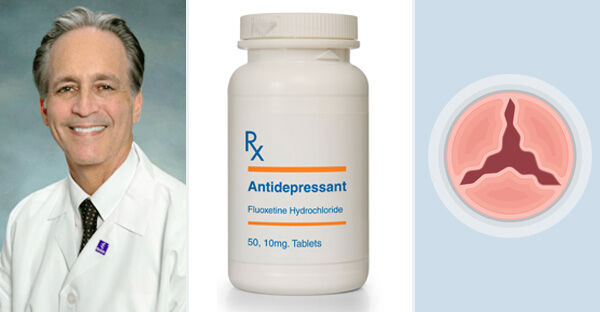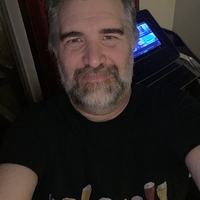Antidepressants & Heart Valve Disease: What Should Patients Know?
Written By: Adam Pick, Patient Advocate, Author & Website Founder
Medical Expert: Raymond Singer, MD, Jefferson Health
Page Last Updated: June 8, 2025
I just received a very interesting question from Mike about antidepressants and heart valve disease. Mike asked me, “Are there any risks of using anti-depressants for patients with heart valve disease? Thanks!”

As I have never been asked this question before… I wanted to provide Mike an expert opinion on this very important topic.
For that reason, I contacted Dr. Raymond Singer, a leading heart valve surgery at Jefferson Health in East Norrtion, Pennsylvania. As you may know, Dr. Singer is a long-time supporter of HeartValveSurgery.com, who has performed over 7,000 cardiac procedures and more than 3,000 heart valve operations. In our community, Dr. Singer has successfully treated many patients including Barry Kanick, Craig Hefner and Anne Lewis.
I was AMAZED to receive the following, eloquent response from Dr. Singer specific to Mike’s question about anti-depressants and heart valve disease.
Dr. Singer Says….
Have you ever heard the phrase, “She died of a broken heart” or “He was scared to death?” In people with heart disease, depression, anxiety, and stress can lead to a heart attack, sudden death, or heart failure, in addition to, and independent of, their other risk factors such as hypertension, diabetes, or smoking.
In the extreme case of acute severe depression or stress, patients can develop a syndrome where the pumping chamber (the left ventricle) balloons out and no longer functions. This is known as stress-induced cardiomyopathy, or Takotsubo Syndrome. The condition was first described in Japan in 1991. A takotsubo is an octopus trap, a container with a narrow neck and a large round bowl. Apparently, an octopus can get into the pot, but cannot get out. In the case of stress-induced cardiomyopathy, the base of the heart is narrow and functioning, while the entire left ventricle balloons out like the takotsubo pot.
Depression, anxiety, and stress are all prevalent in our society today and therefore it is critical to be able to control these conditions for heart patients because, if unchecked, it can keep the body in a chronic state of emergency preparedness, which has severe serious implications. Indeed, patients who suffer from depression have 5 times the risk of suffering complications, or even death, from heart disease. Therefore, many cardiologists and primary care physicians will prescribe antidepressant and antianxiety medications to patients in hopes of reducing a patient’s risk of complications from heart disease.
But are the antidepressants and antianxiety medications safe? This is an important question since about 10% of all Americans are taking antidepressant medications. 17.7% of women and 8.4% of men over 18 are on antidepressant medications. This increases with age where 24.3% of women over the age of 60 are on antidepressant medications.
Selective Serotonin Reuptake Inhibitors (SSRI) are the most commonly prescribed antidepressant medications. They improve mood by blocking nerve cells from taking up (resorbing) serotonin, therefore leaving more of this neurotransmitter in the brain. Low levels of serotonin in the brain are associated with depression. High levels are associated with improved mood. These medications are safe for the majority of heart patients and the medications generally work well when properly prescribed.
However, like all medications, SSRIs can have side effects and unintended consequences for heart patients. The most common adverse effect is to increase a patient’s blood pressure. Therefore, heart patients on antidepressant therapies need to have their blood pressure monitored closely. These medications can also cause dizziness, fast heart rate, and an irregular heartbeat. Other side effects include insomnia, nausea, and altered sexual activity, most notably, patients on SSRIs often are unable to have an orgasm. For men who already have erectile dysfunction (ED) due to vascular disease, diabetes, beta-blocker therapy, the addition of SSRIs can have further negative consequences on a person’s libido and sexual function, paradoxically leading to more stress and depression.
Can Antidepressants Cause Heart Valve Disease?
Can antidepressants cause damage to heart valves? There is very limited data regarding the answer to this question. One study, published in Taiwan in 2016, suggested a 1.4-fold increase, which is a fairly small increase in risk, likely not significant. Moreover, in that study, the valvular dysfunction described was valve insufficiency, such as aortic valve and mitral valve regurgitation.
Keep in mind, one of the most common side effects of antidepressants that I describe above is to cause an elevation in blood pressure. An elevated blood pressure, in turn, may worsen the degree of valvular insufficiency in patients who already have aortic or mitral valve regurgitation.
More studies are needed to determine if antidepressants cause direct damage to heart valves. Currently, I do not feel there is enough evidence to support that concern.
Therefore, my recommendation is that a physician caring for a patient must work with that patient to decide the benefits vs. the risks of taking antidepressant and antianxiety medications. Similarly, I feel strongly that patients should always know the side effects of the medications that they are taking and ask questions their doctor if they have concerns.
In addition to side effects… Patients should know which medications interact with other medications and/or foods, as some antidepressants such as monoamine oxidase inhibitors (MAOIs) can cause irregular heartbeat and sharply elevated blood pressure when taken with certain cold and/or flu medicines or even with certain foods.
When starting any medication, talk with your doctor and do your own research, by searching reliable resources on the Internet, like HeartValveSurgery.com.
I hope that helps Mike!
Raymond L. Singer, MD, MMM, CPE
Jefferson Health Montgomery Hospital
East Norriton, Pennsylvania
Thanks Mike & Dr. Singer!
Many thanks to Mike for sending us this question. And, an extraordinary thanks to Dr. Singer for sharing his clinical experiences and research with our community. Thanks to Mike and Dr. Singer, I am very hopeful this post will help educate many patients about heart valve disease and antidepressant medications.
Related Links:
- Patient Interview: 4 Days After Jim’s Mitral Valve Repair by Dr. Raymond Singer
- Surgeon Q&A: How Social Media Helps My Heart Surgery Patients with Dr. Raymond Singer
Keep on tickin!
Adam





